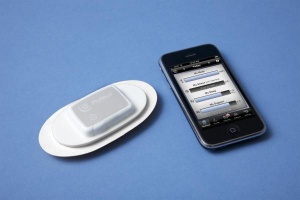 Within the next 18 months, Novartis plans to seek regulatory approval for Proteus Biomedical's microchipped pills, which tracks medication adherence by time-stamping the patients ingestion of medications. Novartis global head of development Trevor Mundel told attendees at the recent Reuters Health Summit in New York that it will submit the smart pill system for regulatory approval in Europe sometime in 2012.
Within the next 18 months, Novartis plans to seek regulatory approval for Proteus Biomedical's microchipped pills, which tracks medication adherence by time-stamping the patients ingestion of medications. Novartis global head of development Trevor Mundel told attendees at the recent Reuters Health Summit in New York that it will submit the smart pill system for regulatory approval in Europe sometime in 2012.
In January Novartis announced that would invest $24 million in upfront cash and equity as part of an exclusive worldwide agreement for the pharma company to license Proteus Biomedical’s sensing technology for organ transplantation.
"We are taking forward this transplant drug with a chip and we hope within the next 18 months to have something that we will be able to submit to the regulators, at least in Europe," Mundel said.
"At least in Europe"? Sounds as if Mundel is unsure whether the smart pills will begin the approval process in the United States during the next two years. The FDA provided 510(k) clearance for one component of Proteus' Raisin system earlier this year -- the adhesive patch that communicates with the smart pills as the patient's stomach breaks them down.
Interestingly, because Proteus' chips will be an add-on for drugs already in the market, Novartis believes it will not have to conduct full-scale clinical trials for the smart pills and is planning to do bioequivalence tests instead to demonstrate that the results are the same.
According to Mundel, regulators are also very interested in how Novartis and Proteus plan to protect patients' personal health information as it is transmitted from the pills inside their body to the patch and then via Bluetooth to a smartphone or other hub.
















